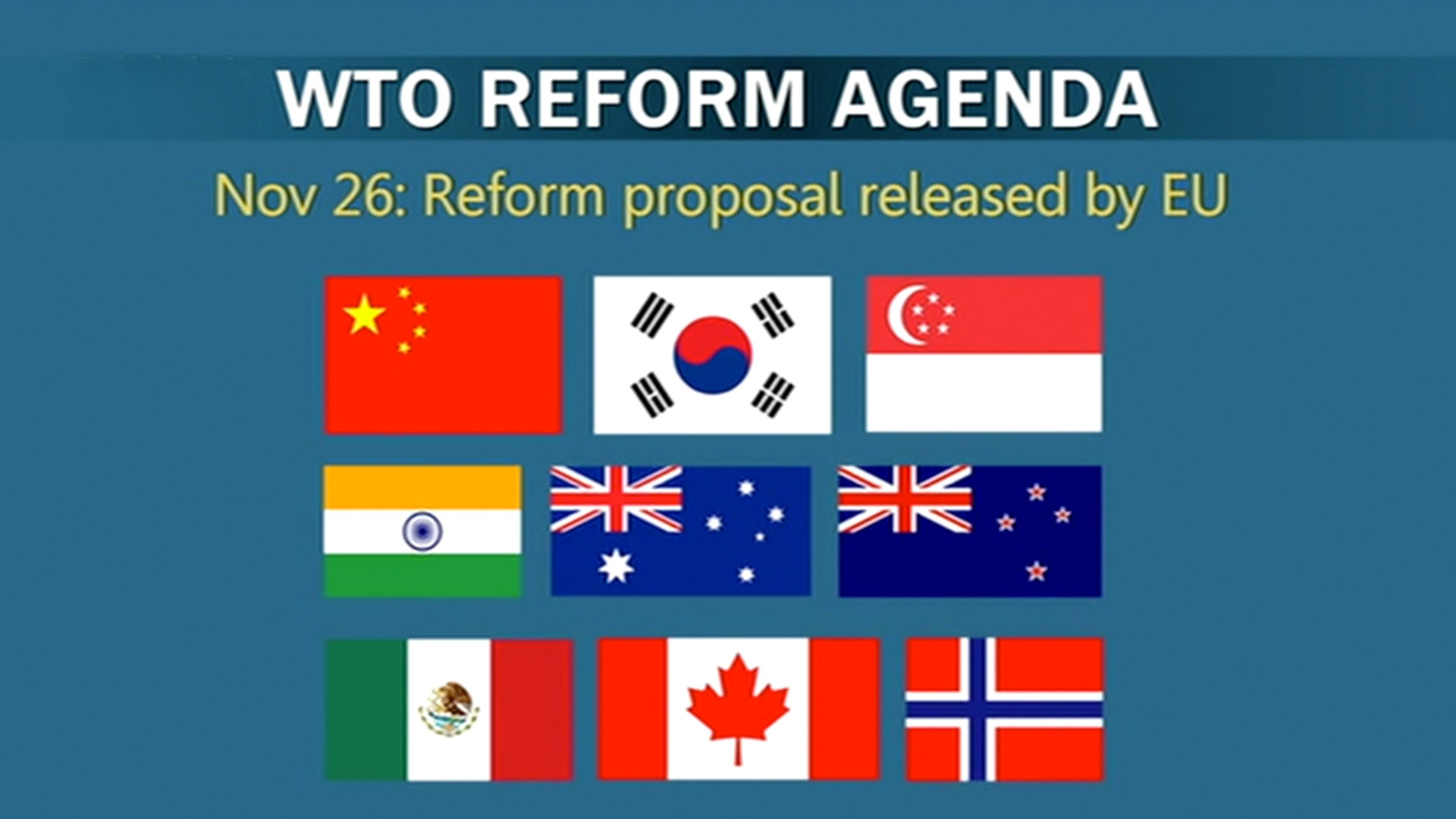
Business
15:49, 11-Dec-2018
How will WTO reform agenda impact developing nations?
Updated
14:43, 14-Dec-2018
By Nayan Seth, Li Jingyi
01:17

The U.S. has openly blocked appointments of new judges to the World Trade Organization's (WTO) dispute settlement mechanism. In response, other major economies have agreed upon a reform proposal, which will be presented at WTO's General Council meeting on Wednesday.
Here are more details about the proposals and how they will impact developing nations.
On November 26, the European Union unveiled a new proposal, which was backed by China, South Korea, Singapore, India, Australia, New Zealand, Canada, Mexico and Norway.
The key provisions include steps to ensure the completion of appeal proceedings in a 90-day time frame and introduce annual meetings between WTO members and the appellate body.
The plan also proposes an expansion of the appellate body by adding two new members and creating an automatic selection process to replace members. It further advocates modifying term limits for members from two four-year terms to one term of six or eight years.
China on its part has fully endorsed reforms in the WTO by calling upon the organization to close loopholes and ensure fairness by protecting interests of developing countries.
China has cautioned member states to avoid a possible trap in the garb of sweeping reforms.
The issue snowballed into a crisis when U.S. President Donald Trump threatened to pull out of the world trading body by blocking the appointment of new judges, claiming that Washington loses almost all lawsuits in the WTO.
But a report by trade policy analyst Dan Ikenson shows that the country has won almost 90 percent of the cases as a complainant.

SITEMAP
Copyright © 2018 CGTN. Beijing ICP prepared NO.16065310-3
Copyright © 2018 CGTN. Beijing ICP prepared NO.16065310-3